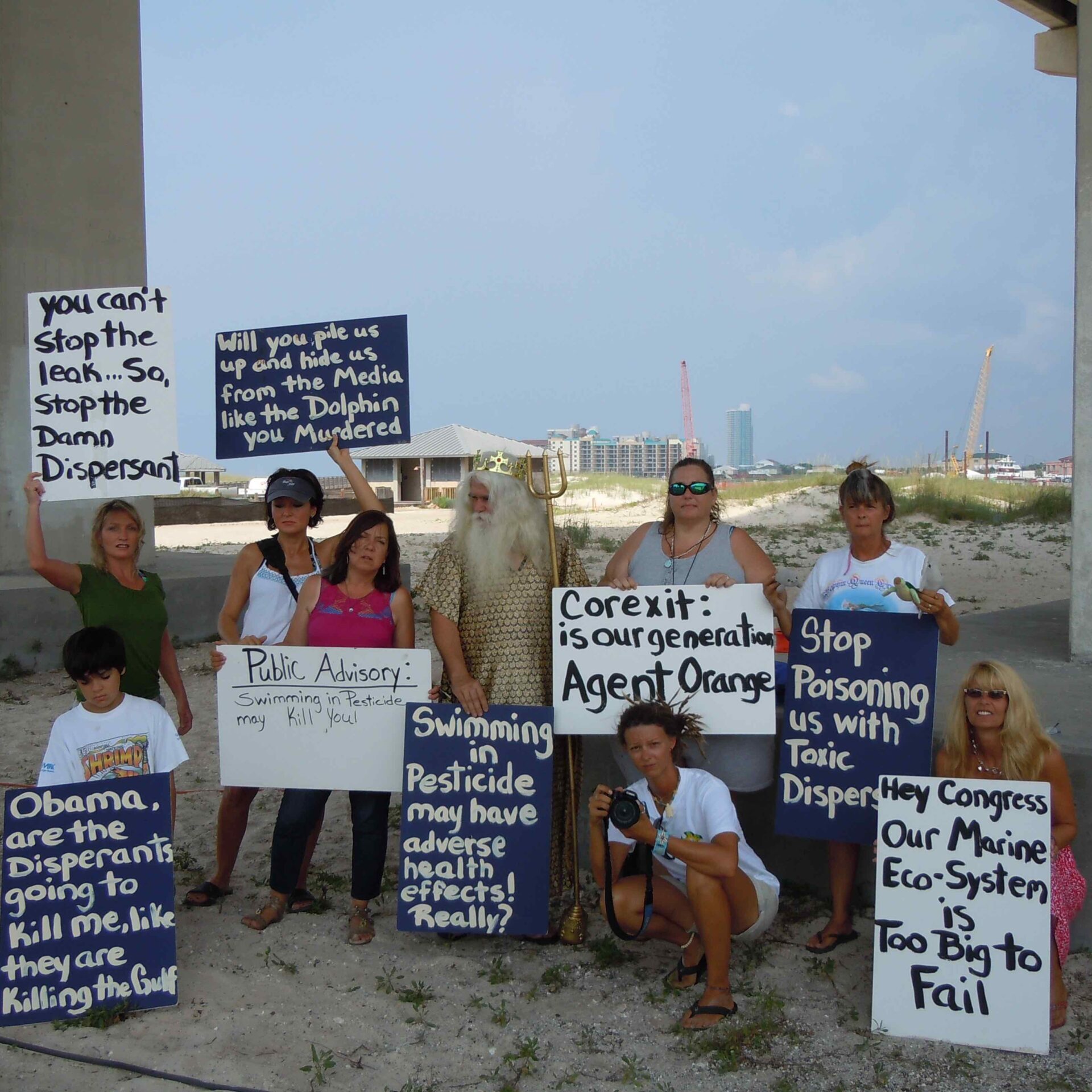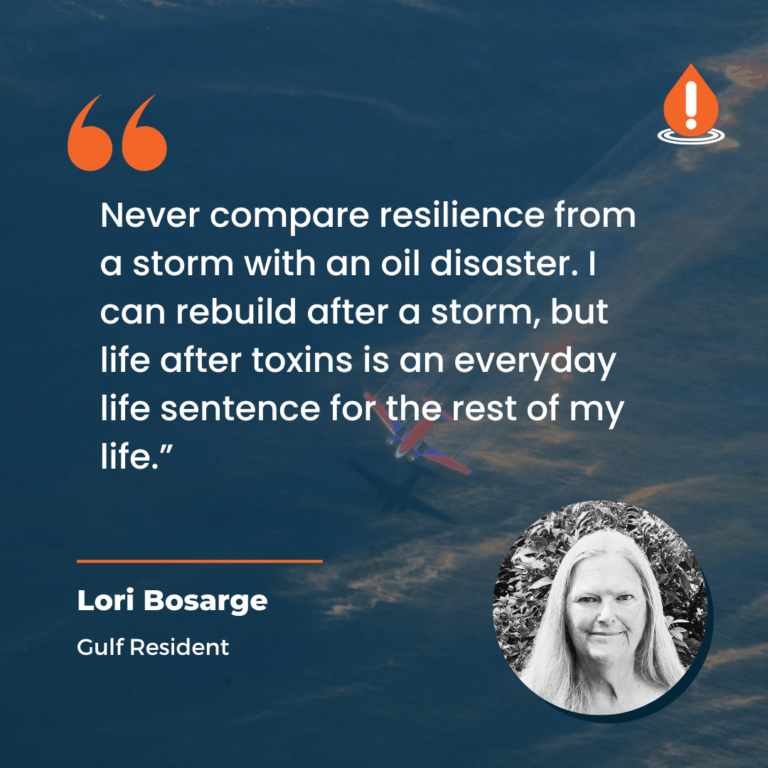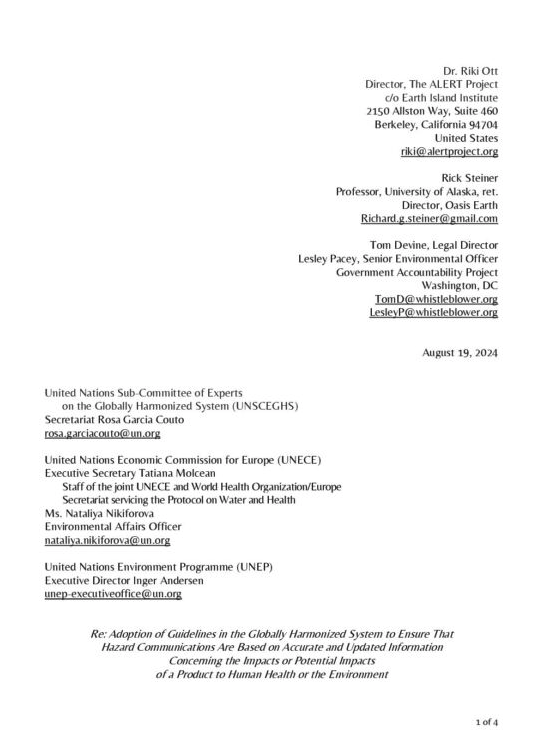The Problem: Dispersants and Lack of Citizen Oversight
During the 2010 BP oil disaster, unprecedented amounts of toxic oil-based dispersants were used to allegedly minimize harm to people and wildlife from the crude oil itself, based largely on oil industry rhetoric.
Aerial spraying and deep sea injection of dispersants continued daily, for months. Nothing like this had ever been tried before — it was all a giant experiment.
The post-disaster science rewrote what was known or presumed to be true about Corexit dispersants. Oil-dispersant mixtures create a toxic cocktail that is deadly to wildlife and humans—much more toxic than oil alone.
Once the truth was exposed, the manufacturer discontinued making and selling Corexit dispersants. However, stockpiles exist around the world and are available for immediate use during marine oil spills including in every coastal state in the U.S.
The dispersant debacle highlighted three major problems in oil spill response that increase the harm from these disasters rather than minimize the harm as required by law. The President’s Commission on the Deepwater Horizon identified these problems as critical gaps in national preparedness for oil spills They provide our campaign framework.
- Lack of local involvement in response preparation: Disasters begin and end locally. Successful disaster response starts with a local plan developed by states with public input like the regional citizens’ advisory councils in Alaska.
- Inadequate preparation to protect human health: Previously, response plans considered environmental impacts and restoration, not human health impacts. Product use decisions did not address public health concerns or adequate safety training for citizen responders.
- Outdated testing protocols allowed use of very toxic products: This critical gap was identified by concerned citizens who successfully sued, resulting in rules that could (if implemented) eliminate the more toxic products.

Lack of local involvement in response preparation
Inadequate preparation to protect human health
Outdated testing protocols allowed use of very toxic products

This affects everyone.
The EPA is now required to maintain and update national emergency response plan for oil spills based on accurate and truthful new or relevant information concerning impacts or potential impacts of the product to human health or the environment. This is good news for some 133 million Americans who live near the coasts—that’s 39 percent of the U.S. population. It’s also good news for emergency responders.
However, the same agencies – US Coast Guard and Environmental Protection Agency (EPA) – are still in charge of response plan revisions, and their agenda will give us more of the same instead of an improved response plan.
To address all the critical gaps, your state lead agency for oil spill response needs to hear from YOU about why YOU want citizen oversight, worker and public health protection, and safer products.
It’s not a matter of if, but when the next oil-related disaster will occur.
Take a stand! Demand that your state takes this opportunity to make spill response safer for people and the environment.
Our Solutions
Grassroots Campaign:
A Call to Action
Ban Use of Corexit Dispresants
Update Oil Response Plans with protections for worker and public health

One-minute ways you can help.

Take Action
PRESS RELEASE: Groups Petition EPA to Ban Use of Oil Dispersants Discontinued by the Manufacturer —And Ask United Nation Bodies to Do the Same
A petition filed by Earth Island Institute’s ALERT Project and the Government Accountability Project asks the U.S. Environmental Protection Agency…
ALERT Advocates United Nations Ban Corexit Dispersant
ALERT advocates United Nations adopt guidelines for truth-in-reporting rule like in the U.S. and take immediate action to remove Corexit…



